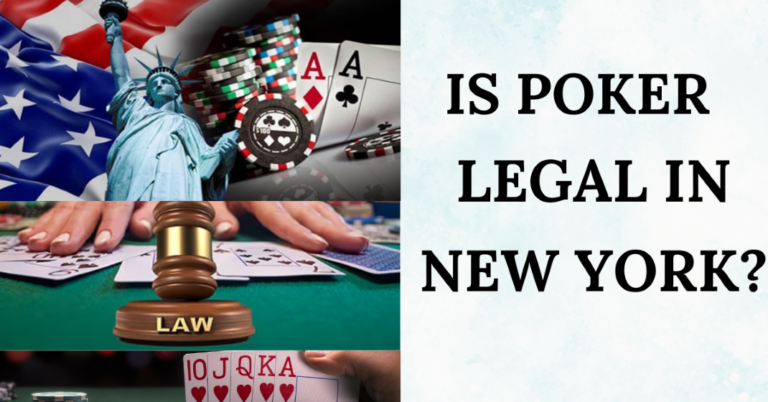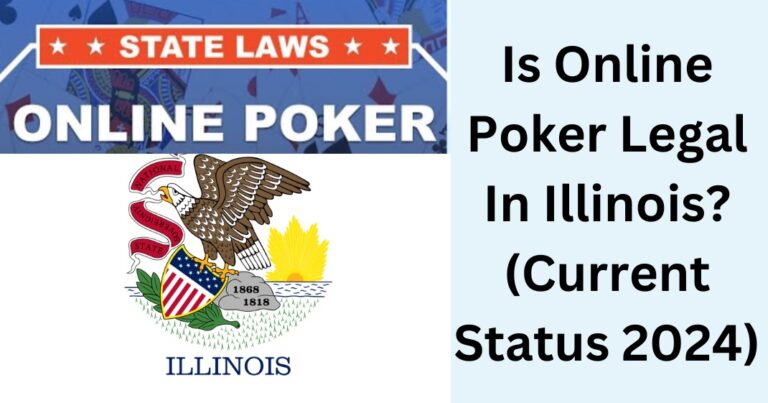Is Poker Legal in Texas? Know Poker Laws In Texas

Texas is well-known as the namesake of Texas Hold ’em, arguably the most popular variant of poker played around the world. However, is poker legal in Texas remains a big question for many. The actual legal status of playing poker in Texas is complex and ambiguous, with somewhat contradictory gambling laws that leave much open to interpretation. This article aims to provide an overview of the current legal landscape surrounding poker, the grey areas that remain untested, potential future legislative changes, and the practical implications for poker players and operators in Texas.
The Current Legal Landscape for Poker
Texas statutes specifically prohibit most forms of betting and gambling, with violations constituting a Class C misdemeanour. However, certain exceptions exist for “social gambling” conducted under particular conditions. The two main statutes are:
- Texas Penal Code §47 – Broadly outlaws the promotion of or profiting from any gambling activities.
- Texas Occupations Code §2002 – Creates exemptions for “social gambling” conducted in a private place where no person receives any economic benefit other than personal winnings.
So, while hosting a poker game for profit would violate state law, participation in certain non-commercial, social games appears to be permitted. However, the precise boundaries are unspecified.
Poker-Specific Precedents and Enforcement
In 2019, a series of raids on Texas poker rooms and allegations of money laundering briefly highlighted the grey areas in the state’s treatment of poker under gambling laws. However, prosecutions were soon dropped. Let’s take a look at some of the presents and enforcements:
- Private, social home games are generally considered legal if the host does not charge fees or collect a rake on the gameplay.
- Small-scale poker tournaments hosted in private residences also do not violate the law so long as they remain non-commercial.
- Attempts in recent years to create larger-scale private “poker clubs” that charge membership fees have faced legal scrutiny when trying to operate in perceived loopholes within the Texas gambling law exemptions.
Also Read: Is Poker Legal In New York? Know Current Status And Info
Recent Legal and Legislative Developments

There have been few major legislative or judicial developments directly clarifying poker’s legal status in Texas in recent sessions. Most proposed bills aiming to expand legal gambling (including poker) or provide clearer definitions around social poker have failed to progress. Recent disputes have centred more around Native American groups seeking to offer expanded gaming options in potential casinos on tribal lands. So, for now, the legal landscape for poker remains similar to the framework outlined above, dependent on interpretations of “social” vs. “for-profit” gambling.
Evaluating Poker Rooms: Private Social Games or Public Gambling?
A core ambiguity in Texas poker laws remains the distinction between supposed “private” social gambling exemptions versus illegal “gambling establishments.” The table below highlights some key differences:
| Private | Public |
| Non-commercial | Commercial, for-profit |
| Unadvertised | Advertises games/tournaments |
| Host does not profit | Charges membership fees, rake, etc |
| Invitation-only participants | Open to public/anyone willing to pay |
So, a small weekly home game amongst friends without any fees is likely clearly legal, while a dedicated poker room charging membership dues for access would risk violating state gambling laws prohibiting the promotion of betting for profit.
But between these extremes lies a spectrum of activities whose legal status remains untested. For example, what if a home poker game grows in popularity and consistently attracts dozens of players? What constitutes a “private” residence if temporary venues are rented? These grey areas lead to the main ambiguities in current Texas poker laws.
Key Grey Areas Remaining in Texas Poker Laws

While the social gambling allowances provide some legal protections, there are several areas where poker’s status remains unclear under current Texas statutes:
Poker Clubs Attempting to Skirt Gambling Prohibitions
- In recent years, there have been attempts to set up member-based poker venues that charge monthly/annual “membership fees” rather than taking rakes or profits directly from gambling proceeds.
- The legal theory is that by classifying payments as membership fees unrelated to gambling amounts, they qualify as exempt social gambling under the law.
- However, the actual legality of such poker clubs remains disputed and untested thus far in Texas courts. Local prosecutors retain broad discretion for charging gambling law violations.
Online Poker in the Era of Offshore Sites
- Texas laws prohibit the promotion or facilitation of online gambling sites based in the state, classifying it as illegal gambling.
- However, hundreds of thousands of Texas residents play poker online on various offshore sites (hosted overseas but accessible to Texans) operating in legal grey areas.
- While individual players likely face little risk, the laws around online poker sites themselves remain unclear, which seek to operate beyond the reach yet still serve the Texas market.
Debates Around Poker as a Game of Skill
- Some states differentiate between games of chance (illegal gambling) versus games of skill. Since poker involves significant elements of skill and talent, that distinction could impact its legal status.
- However, most Texas statutes centre on “betting” elements of gambling and do not delineate chance versus skill games. Attempts to differentiate poker as skill-based have achieved little legal success so far in Texas courts when applied to gambling charges.
Without further clarification from legislators, judges, or prosecutors interpreting existing statutes, such grey areas surrounding poker clubs, online poker, and poker skill arguments will likely persist indefinitely into the future. The contradictions embedded into current laws ensure consistent ambiguity around certain aspects of poker legality.
Potential Changes: The Outlook for Poker Legality Expansions
Looking ahead, there are several avenues through which Texas poker laws could shift towards increased permissions or legal clarity. However, substantial political barriers remain. Some possibilities include:
Legalized Card Rooms
- Complete statutory carve-outs that would explicitly permit poker operations (such as member-based “card room” models adopted in some other states).
- Would provide licensed poker venues similar to casinos but without slot machines or house-banked table games. Could generate state tax revenues while expanding legal gaming options.
Integrated Casino Destinations
- Broader legislative packages allowing construction of major casino developments with poker card rooms included alongside other table games and slots.
- Primarily focused on tourism destinations to drive visitor traffic. It would expand poker access considerably but face opposition around the social impacts of widespread casino gambling options.
Clarification of Tribal Gaming Rules
- Targeted bills around poker and casino gaming, specifically on Native American tribal lands rather than commercial operations elsewhere in the state.
- Continued disputes in federal and state courts have muddied guidelines for tribes. Clearer definitions could expand poker options on tribal destinations while broadly limiting commercial gaming expansion.
However, despite consistent attempts around bills addressing all such concepts, long-standing political opposition has stymied almost all proposed gambling expansion legislation in Texas so far. Socially conservative policymakers retain significant power, diminishing prospects for poker legalization breakthroughs in the near term.
Most bills still need to progress out of initial committee reviews. With contradictory statutes still in place, poker’s state-level legal status thus seems likely to remain constitutionally ambiguous for years to come, barring federal interventions.
Also Read: Is Online Poker Legal In California? Know Poker Laws
Practical Implications: Guidance for Poker Players and Operators

Given the complex interplay between Texas statutes permitting social gambling and blanket bans on profiting from betting operations, what should everyday poker players and wannabe poker room operators make from this legal morass? Below are some key practical guidelines to consider:
For Players:
- Exercise caution around advertising involvement in even purportedly legal home games more openly. Prosecutorial discretion means activities in perceived “grey areas” still risk charges.
- Take care when participating in online poker sites, given the complete lack of state regulatory protections compared to legal markets like New Jersey, which license sites. Use established offshore brands versus newer entities.
For Operators:
- Do not attempt to profit or raise revenues directly through any fees, rakes on gameplay, mandatory tips, etc. Strictly avoid direct monetization tied to poker itself.
- Maintain control over admission policies. Restrict poker participants via invite-only participation or strict membership enrollment procedures rather than maintaining an open-door policy.
- Refrain from openly advertising games/tournaments with mass outreach and public visibility—market events discreetly through word-of-mouth or direct outreach to known contacts. Avoid broad digital promotion.
Such guidance will not guarantee avoiding all legal risks, as local prosecutors can still interpret “social” poker allowances differently. However, prudent steps to remain non-commercial and private may help mitigate liability under state gambling statutes. However, attempts to actively expand poker offerings likely require legislative shifts first.
Comparisons to Other States: Poker-Friendly Regulation Frameworks
Unlike Texas, several U.S. states have expressly legalized and regulated various forms of poker play and poker rooms:
Allows private member-based card rooms to meet strict regulatory requirements around licensing, operations, and oversight. But prohibits casinos with “banked” games like roulette or blackjack.
Permits licensed poker rooms allied with pari-mutuel racing facilities. Also regulates small-scale “cardroom poker” venues limited to particular card games.
Famous for explicitly allowing licensed poker rooms and serving as the global hub for much of the professional poker industry. Also legalizes full-scale casino gaming.
Such state-level gaming frameworks provide “safe harbour” environments for commercial poker business activities. Texas would likely have to adopt similar dedicated legislative packages carving out permissions for regulated cardroom models if it wishes to expand legal poker options while addressing related policy concerns (rather than maintaining blanket gambling prohibitions).
Conclusion
Despite poker’s enduring popularity among Texas residents ever since the state lent its name to the quintessential Texas Hold ’em variant, poker laws in Texas itself remain contradictory, situationally enforced, and stuck in legal ambiguity. Attempts to expand gambling legislation or clarify policies around social poker versus commercial gaming venues have seen minimal success so far despite consistent advocacy efforts each legislative session. As such, careful navigation of the nuances in existing gray area statutes – beyond blanket gambling prohibitions – remains necessary for poker players and prospective operators alike.






